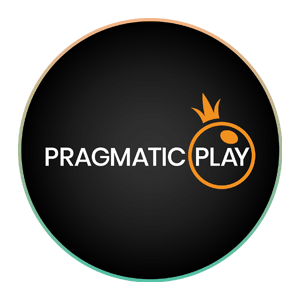สล็อต เป็นหนึ่งในการพนันออนไลน์ FAFA168 ที่ได้รับความนิยมสูงสุดเป็นอันดับที่ 1 และ สล็อตเว็บตรง ก็เป็นผู้ให้บริการ ในด้านสล็อตเต็มรูปแบบ โดยนำเข้าค่ายเกมชั้นนำต่างๆจากทั่วโลก มาไว้ในเว็บเดียวเท่านั้น พร้อมให้บริการแบบเต็มรูปแบบ เว็บตรงสล็อต จึงเป็นเว็บสล็อตที่มีคนเข้ามาเล่นเยอะมากที่สุด สำหรับใครที่ต้องการปั่นสล็อต ก็สามารถทำการ สมัครสล็อตเว็บตรง ได้เลยตอนนี้ พร้อมรับแจ็คพ็อตจากเว็บตรงได้แบบไม่มีอั้น รับประกันว่าไม่เหมือนที่ไหนแน่นอน
นอกจากนี้ทาง เว็บสล็อต ยังมีการรองรับการฝากถอนผ่าน ทรูวอเลท ไว้ให้อีกด้วย ซึ่งก็เป็นอีกหนึ่งช่องทางที่สายปั่นสล็อตนิยมมากที่สุด เนื่องจากมีความรวดเร็วกว่าการใช้บัญชีธนาคาร สล็อตเว็บตรงวอเลท นับเป็นอีกหนึ่งความสำคัญของผู้ที่ต้องการเล่นสล็อตมากเป็นอันดับต้นๆ นี่จึงเป็นเหตุผลว่าทำไมเราถึงเป็นเว็บตรงสล็อตแท้ 100% เจ้าเดียว ณ เวลานี้

ปัจจุบันต้องแยกเว็บสล็อตเป็น 2 ประเภท คือ 1. สล็อตเว็บตรง และ 2.เว็บเอเย่นต์ โดยสล็อตเว็บตรง FAFA168 จะเป็นผู้ให้บริการที่นำเข้าตัวเกมต่างๆอย่างถูกต้อง โดยที่ไม่มีการล็อคผลชนะ หรือปรับอัตราการแตกได้แต่อย่างไร อีกทัั้งการนำเข้าสล็อตจากค่ายเกมชั้นนำนั้น เท่ากับว่าจะต้องมีใบอนุญาตที่ถูกต้อง และมีความมั่นคงอย่างสูง ส่วนเว็บเอเย่นต์นั้นจะเป็นเว็บสล็อตทั่วไป ที่เช่าเซิร์ฟเวอร์มาอีกที โดยเว็บประเภทนี้นั้นจะสามารถควบคุมได้ทั้งหมด ไม่ว่าจะเป็นอัตราการแตกของ สล็อต อีกทั้งยังไม่มีความมั่นคงอีกด้วย
เว็บเอเย่นต์มักจะปิดตัวลงหลังจากเปิดได้ไม่นาน เนื่องจากร้อยละ 90% จะเป็นเว็บโกง จะแตกต่างจาก สล็อตเว็บตรง ที่จะเปิดให้บริการเป็นเวลานานกว่า เนื่องจากมีความมั่นคง ดังนั้นหากสนใจอยากจะปั่นสล็อตจริงๆ แนะนำให้เล่นผ่าน เว็บตรง100% เท่านั้น มีความปลอดภัย และแฟร์มากที่สุดสำหรับผู้เล่นนั่นเอง
| สล็อตเว็บตรง | เว็บเอเย่นต์ |
|---|---|
| สล็อตแตกง่ายกว่า เฉลี่ยที่ไม่ต่ำกว่า 80% | มีการล็อคอัตราชนะ, ล็อคยูส ให้มีอัตราชนะที่ต่ำกว่า 40% |
| รองรับการฝากถอนผ่านทรูวอเลท | ไม่มีการรับทรูวอเลท |
| บริการตลอดเวลา 24 ชั่วโมง | ไม่สามารถติดต่อแอดมินได้ |
| อัพเดทเกมใหม่เสมอ | มักจะไม่มีการอัพเดท หรืออัพเดทช้ากว่าเว็บตรง |
| สล็อต เว็บตรง ขั้นต่ำ 1 บาท | ต้องมีขั้นต่ำที่สูง และกำหนดยอดถอนต่อวัน |
| สล็อต ออโต้ | ระบบธรรมดา ใช้เวลาทำรายการนาน |
เนื่องจาก สล็อตเว็บตรง มีการนำเข้าค่ายเกมมามากกว่า 55 ค่ายเกม (ข้อมูลล่าสุดเดือน พฤจิกายน 2566) และแต่ละค่ายใน เว็บสล็อตเว็บตรง นั้นก็มีความหลากหลายและความแตกต่างกันทั้งหมด FAFA168 ไม่ว่าจะเป็นตัวอนิเมชั่น, อัตราชนะ รวมไปถึงฟีเจอร์ต่างๆ และในหัวข้อนี้เราจะมารีวิว 6 ค่ายจากสล็อตเว็บตรง ที่มีผู้เล่นและถอนเงินออกไปได้มากที่สุด จะมีสล็อตค่ายอะไรบ้างนั้นเรามาดูกันได้เลย!

พีจีสล็อต จากผู้ให้บริการหลัก PG SOFT เป็นค่ายสล็อตที่คนไทยชอบมากที่สุด เนื่องจากใช้งานง่ายและรองรับภาษาไทย ถือว่าเป็น สล็อตเว็บตรง แตกง่าย มากที่สุดในลิสต์นี้เลยก็ว่าได้ มีจุดเด่นคือตัวเกมมีภาพที่สวย และฟีเจอร์ในแต่ละเกมที่ไม่ซ้ำกันเลยสักเกม สามารถซื้อฟรีสปินตั้งแต่เข้าเล่นเกมได้เลยทันที โดยที่ไม่ต้องหมุนให้เสียเวลา เพิ่มโอกาสในการทำรายได้จากการเล่นสล็อตมากกว่าเดิมถึง 2 เท่า นับว่าเป็นการเปิดตัวที่ดีที่สุดในเวลานี้เลยก็ว่าได้

ค่ายเกมน้องใหม่มาแรงที่สุด ถึงแม้ว่าความสวยงามของตัวเกมต่างๆนั้นจะยังดูธรรมดา แต่จุดเด่นมากที่สุดของค่าย JILI นั้นสำคัญกว่า นั่นก็คึออัตราการชนะที่สูงมากๆ ฟีเจอร์เด็ดเกมนี้คือ สล็อต ออโต้ ที่เป็นระบบที่ทำให้ค่ายเกมนี้ประสบความสำเร็จมากที่สุดเลย หากมองข้ามเรื่องหน้าตา และต้องการแจ็คพ็อตสล็อต เราขอแนะนำให้คุณเข้ามาลองสล็อตค่ายนี้ รับประกันได้ว่าไม่มีคำว่าผิดหวังกลับไปแน่นอน ส่วนข้อเสียเราขอไม่พูดถึง เพราะว่าไม่มีผลต่อการเล่นอยู่แล้ว

นำเข้าจากยุโรปเป็นค่ายเดียวในลิสต์ของเรา ถือว่าเป็นการผสมผสานระหว่างความสวยงาม และความทันสมัยเข้าไว้ด้วยกันอย่างลงตัว มีเกมสล็อตในค่ายนี้ให้เลือกมากกว่า 200 เกม มีการปล่อยเรทอัตราแตกของสล็อตที่ขั้นต่ำ 85% แต่ความแปลกของสล็อตค่ายนี้นั่นก็คือเรท RTP ที่จะไม่เหมือนกันสล็อตแถบเอเชียที่จะมีการล็อคไว้ในแต่ละเกม แต่ที่นี่จะเป็นการตั้งไว้โดยรวม เท่ากับว่าไม่ว่าคุณจะเข้าเล่นเกมไหน ก็มีโอกาสแตกกับ เว็บตรง100% ได้เท่ากันนั่นเอง

ความโดดเด่นที่สล็อตค่ายนี้จะเป็นตัวเกมที่มีให้เลือกเล่นเยอะมากที่สุด และจะมีการบอกด้วยว่าเกมไหนใกล้จะแตก ทำให้การตัดสินใจในการเลือกนั้นง่ายกว่า ที่นี่ยังเป็น สล็อตเว็บตรง ฝาก-ถอน true wallet ไม่มี ขั้น ต่ํา อีกด้วย มีเพียงแค่ 1 บาทก็สามารถเข้ามาเล่นได้อย่างเต็มที่ พร้อมรับเงินกลับไปแบบที่คุณไม่คาดคิดกันอย่างแน่นอน

สำหรับค่ายนี้ถือว่าเป็นที่น่าสนใจไม่แพ้กัน แนะนำสำหรับมือใหม่เนื่องจากตัวเกมส่วนมากนั้นจะเป็นแบบสล็อตคลาสสิค มีช่องเล่นที่เข้าใจได้ง่ายกว่าเกมทั่วไป อีกทั้งสล็อตยังมีอัตราแตกที่มากกว่า 85% อีกด้วย แม้ว่าฟีเจอร์จะไม่สามารถสู้กับค่ายอื่นได้ แต่อัตราการชนะก็สามารถตอบโจทย์สำหรับผู้ที่ต้องการทำเงินจากการปั่นสล็อตได้อย่างดีเลยทีเดียว

สุดท้ายกับสล็อตเว็บตรงอย่าง Joker Gaming ที่ได้รับความนิยมมาอย่างต่อเนื่อง ถึงแม้ว่าอัพเดทล่าสุดจะปรับอัตราชนะลงไปเหลือที่ 87% แต่ก็แลกมากับฟีเจอร์ต่างๆในเกมที่แจกหนักกว่าเดิมมากกว่า 2 เท่า ข้อเสียเพียงอย่างเดียวของค่ายนี้คือกราฟฟิคที่ค่อนข้างล้าสมัย ซึ่งไม่มีการอัพเดทมามากกว่า 2 ปีแล้ว แต่นี่ก็อาจจะเป็นอีกหนึ่งจุดเด่นที่ทำให้ค่ายแห่งนี้มีกลิ่นอายของความคลาสสิคในตัวเองอีกด้วย หากใครที่อยากลองแจ็คพ็อตก้อนใหญ่จากการเล่นสล็อต ก็ไม่ควรพลาดทุกประการ!

ถือว่าเป็นเทรนด์ใหม่เลยก็ว่าได้ที่ต้องมี สล็อตวอเลทเว็บตรง นั่นก็เพราว่าการใช้งานผ่าน True Wallet นั้นมีความรวดเร็วมากกว่า สามารถทำการทำธุรกรรมขั้นต่ำได้เพียงแค่ 1 บาทเท่านั้น สล็อตเว็บตรง100% จึงเป็นที่จะต้องมีการรองรับ ทรูวอเลท ในช่องนี้นั้นเอง นอกจากความสะดวกสบายแล้วก็จะยังมีเรื่องของสิทธิประโยชน์ ไม่ว่าจะเป็นโบนัสต่างๆภายในสล็อตเว็บตรง
สล็อตวอเลท ไม่มีขั้นต่ํา ยังไม่จำกัดประเภทของผู้เล่น ไม่ว่าคุณจะมีทุนมากน้อยแค่ไหนก็สามารถมาลุ้นรวยได้เท่าๆกัน ส่วนความแตกต่างของการใช้บัญชีธนาคารกับวอเลทนั้นก็จะมีในด้านของความรวดเร็ว และธรรมเนียมในการฝากถอน ที่การใช้วอเลทนั้นจะไม่มีค่าบริการในส่วนนี้ และมากกว่า 60% ของผู้เล่น FAFA168 บางส่วนก็มักจะไม่มีธนาคารอีกด้วย นี่จึงเป็นเหตุผลหลักที่เว็บตรงสล็อตจะต้องมีช่องทางทรูวอเลทไว้รองรับนั่นเอง
ในการฝากถอนผ่านทรูวอเลท สล็อต เว็บตรง ขั้นต่ำ 1 บาท เท่านั้น และไม่จำกัดจำนวนถอนต่อวัน
วิธีเลือกคือให้เลือกเกมที่มีอัตราชนะมากกว่า 80% เป็นต้นไป
ไม่มีแน่นอน 100% เนื่องจากเราเป็นผู้ให้บริการหลักอย่างถูกต้อง เชื่อถือ และมีความมั่นคงสูงที่สุด